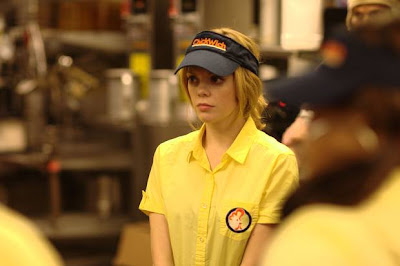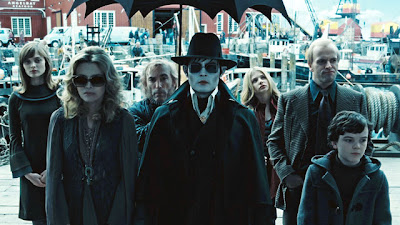Today we continue our journey through the James Bond films with No. 0019 of 0023:
The Living Daylights. This was Timothy Dalton’s first Bond film and it’s a very small movie. This film was meant to bring realism back to James Bond and explore his darker side. It didn’t. Instead, they created a film which felt small all around – small Bond (not larger than life), small-time villains, small-time plot, small sets confined to small areas. Even when Bond travels, you never get the travelogue feel of prior Bond films. Small, small, small.
Plot Quality: The Living Daylights begins with a bit of intrigue. During a mock 00-operative invasion of Gibraltar, some bad guy kills 004 and then nearly kills Bond. This leads to the discovery of something called Smert Spionam (“Death to Spies”). The scene then shifts to Czechoslovakia, where 007 has been assigned to protect KGB General Georgi Koskov (Jeroen Krabbe), who is planning to defect. Bond shoots the female cellist (Maryam d’Abo) who was assigned to assassinate Koskov if he tries to flee. But Bond doesn’t kill her because he recognizes her as an amateur. Bond then smuggles Koskov out of Czechoslovakia into Austria through a pipeline. This is the best part of the film, even though it is a small idea involving few people, low stakes and confined sets. It also involves an annoying trope – the inept bureaucrat who despises Bond being called in to handle “his” operation.
When Bond returns to Britain, he meets with Koskov, who is being debriefed at a safehouse. Koskov warns MI6 about Smert Spionam, an operation supposedly being run by the new head of the KGB, Gen. Pushkin (John Rhys-Davies), to assassinate British spies. Koskov claims this could start a war between the Soviets and the West. Koskov is then kidnapped from the MI6 safehouse. This is where the problems start with the film. For one thing, it’s not obvious how killing spies could lead to war – who goes to war over a dead spy? For another, the film now gets needlessly complicated with a series of double and triple crosses, which seem like they are included merely as filler.
Bond is ordered to kill Pushkin to stop this Smert Spionam operation and avenge the death of 004. Bond, however, decides that Pushkin would not have ordered this operation, so he confronts Pushkin, who tells Bond that Koskov is under investigation for embezzlement, which makes Bond realize the defection was faked by Koskov so he could trick MI6 into killing Pushkin for him. Bond then decides to track down the cellist, whom he believes helped Koskov fake his defection. Naturally, she falls for Bond and he escapes with her. Bond then returns to Tangier to find Pushkin, but Bond gets kidnapped by Koskov and taken to Afghanistan. There he meets the very westernized Mujahedeen. He then steals a Soviet military transport which Koskov is using to smuggle opium to enrich himself and an American arms dealer named Whitaker (Joe Don Baker). Bond saves the cellist and showers the countryside in opium. Then he goes to Tangier to kill Whitaker and Koskov. He kills Whitaker, but Koskov ends up being arrested by Pushkin, who will extract revenge. The film ends with the grateful Soviets letting the cellist leave for the West so she can play for Western audiences.
Unfortunately, despite this dizzying travel schedule, the audience never really gets a sense of travel in this film because the film never ventures out of closed sets, except at the Russian airbase in Afghanistan – and all you see there is dirt. This keeps the film small, as does the evil scheme. Indeed, ultimately, this scheme boils down to a guy looking to skim profits off a drug deal. This is hardly worthy of James Bond, especially because there are no real consequences if he doesn’t succeed. . . some opium gets to Europe. Big deal. They get all they want already. Moreover, the climax moment in the film is a fight between Bond and Koskov’s henchman Necros on an airplane. . . not even between Bond and Koskov himself. Again, small thinking.
Finally, as with License to Kill, there aren’t really any iconic moments and there aren’t really any memorable quotes. This isn’t a film that makes an impression.
Bond Quality: Timothy Dalton was a bad choice for Bond. With Roger Moore too old to play the role, the producers wanted Pierce Brosnan, but he was contractually bound to play Remington Steele. The next choice of the director and co-producers was Sam Neill, but Albert Broccoli wanted Dalton. Dalton had previously expressed disdain for the role and, frankly, he just didn’t have what he needed. For one thing, this film was meant to show a more realistic and darker Bond, but Dalton really couldn’t pull that off. For while Bond is meant to be cold-blooded, Dalton projects a lot of anger onto the screen. Bond is also meant to be stylish, but Dalton never once makes you wish you knew his tailor.
Dalton also never feels comfortable in the role. This is because Dalton is one of those Shakespearean-type actors who can’t shake his training. If you compare him in this role to his role in The Rocketeer or his role in Flash Gordon, they’re identical. And anyone who thinks you can play James Bond the same way you play Prince Baron just doesn’t understand acting.
The Bond Girl: The Bond girl here was Maryam d’Abo as Kara Milovy, the cellist. She’s kind of passive. She exudes no passion, no mystery, and she has no great motive to be in the film. She’s just the narcoleptic girlfriend along for the ride. Nor do you ever get the sense that she sees Bond as more than just a friend.
Villain Quality: Finally, we come to the villain(s). Yikes. This film has two villains, and neither is worthwhile. First, you have Koskov. Played by Jeroen Krabbe, the villain in The Fugitive, Koskov is not fitting to be a James Bond villain. Essentially, he’s an embezzler who tries to trick James Bond into killing his boss to keep from being discovered. This makes little rational sense and robs the story of any stakes. Indeed, whether Bond succeeds or not, nothing changes for the world. Perhaps realizing this, the writers try to up the stakes by telling the audience that Koskov is trading arms to the Mujahedeen in exchange for drugs, which he will sell in Europe. But how does this help? It’s not like Europe won’t get plenty of drugs either way, and the US was openly arming the Mujahedeen. So what do we care?
Moreover, his plan to get Bond to kill his boss is Rube-Goldberg silly. Does anyone really think the Soviet Union won’t figure out that he staged a fake defection and met with Bond right before Bond killed his boss? The Soviets would need to be retarded not to put those facts together. Seriously, just shoot Pushkin or stage a car accident like everybody else does. Of course, Koskov may be mental because he keeps not killing Bond for no apparent reason. Even worse, throughout the film Koskov comes across as a bungler who kisses everyone’s butt... like the Biff of the James Bond Villain world. This is not a Bond villain, not in scheme, not in personality.
The other villain is Joe Don Baker as Brad Whitaker. Baker is a B-grade actor at best and Whitaker is pathetic. He’s an arms dealer who likes to dress up like a general and play with toy soldiers. He doesn’t really have a scheme either because the writers assumed that the audience would accept the fact that he’s an arms dealer as proof enough of his villainy. Stupidly, his death is essentially treated as the climax of the film, even though he’s a bit player with an uninteresting story not worthy of Bond. In fact, there wasn’t even a reason for Bond to go after him because the cops could have picked him up just as easily.
Neither villain rises to the level of a Bond villain. This is probably why the film’s true climax involves Bond killing Koskov’s henchman aboard the Russian transport plane. And just to add insult to injury on that point, the only cool thing about the henchman is his name “Necros.” He has no other defining traits.
Conclusion
This was a rocky start for Timothy Dalton. The film began well enough, but quickly became a jumbled mess, and there was little to mark this film as a James Bond film: small time villains, small locations, small Bond, small plot, mousy Bond Girl, dated soundtrack. The only thing that wasn’t small was the transport plane fight, and that was too long to stay interesting and it lacked any real stakes. . . it was just a nice stunt. But this film was better than Dalton’s second attempt. That’s why this film is No. 0019 of 0023.
[-] Collapse Post...
 There’s a new show on the Sci-Fi Channel called Defiance. Yawn. Sorry. As I was saying, there’s a new show on the Sci-Fi Channel called Defiance. It sounded like an interesting premise when the ads first appeared for it, but it’s not. It’s missing the one thing that really matters: a story. In fact, this is the real problem with most science fiction shows these days.
There’s a new show on the Sci-Fi Channel called Defiance. Yawn. Sorry. As I was saying, there’s a new show on the Sci-Fi Channel called Defiance. It sounded like an interesting premise when the ads first appeared for it, but it’s not. It’s missing the one thing that really matters: a story. In fact, this is the real problem with most science fiction shows these days.



































